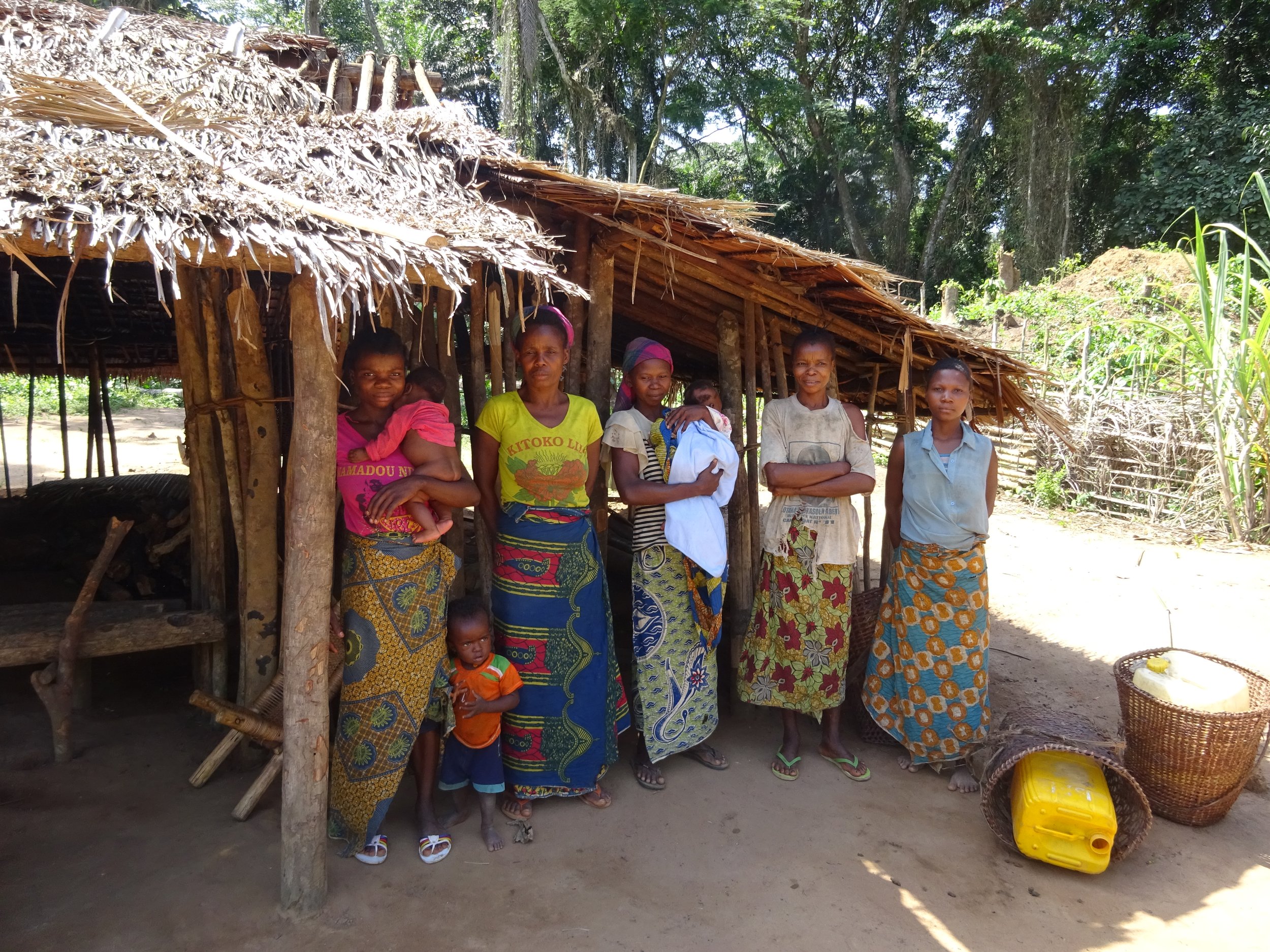
Empowering people
Photo © Christian Ziegler, National GeographicThough indigenous people only make up 5% of the global population, 80% of the world’s remaining biodiversity is found in indigenous territories.
Numerous studies have shown that indigenous people are the most effective stewards of their ancestral lands. This premise fuels BCI’s approach to conservation and has yielded incredible results. BCI is dedicated to protecting bonobos in partnership with their human neighbors.

Livelihood
One of the primary goals of the Peace Forest is helping local communities find economically viable alternatives to bushmeat hunting and slash-and-burn agriculture. Many local residents are employed directly on the reserves as field team members and reserve management, demonstrating that conservation has both environmental and economic benefit. BCI and partners also engage in sustainable agriculture initiatives, microcredit for new businesses, and support for local enterprise, providing supplies, equipment, and training for Congolese entrepreneurs.
Photo © Bonobo Conservation Initiative Healthcare
Peace Forest residents consider access to health care to be their most important need. BCI and partners have built, staffed, and equipped a pilot health clinic in the Kokolopori Bonobo Reserve. In addition to offering basic medical care, the clinic has conducted malaria awareness campaigns, performed nutritional assessments of mothers and young children, trained local women to become midwives and provided pre- and post-natal care to the women of Kokolopori. Our goal is to expand health care services in Kokolopori, Sankuru, and throughout the Bonobo Peace Forest.
Photo © Bonobo Conservation Initiative Education
BCI helps foster the next generation of Congolese conservationists through educational initiatives. BCI provides training for field teams and scholarships for students pursuing degrees in conservation biology and related fields. Together with local partner Vie Sauvage and regional authorities, BCI co-founded the Djolu Technical College for Conservation and Rural Development, the only institute of higher learning within a 40,000 square mile radius. It received official accreditation in 2012. BCI also produces and distributes conservation educational materials to primary and secondary schools.
Photo © Alexia Lewnes Women’s initiatives
Bonobos live in peace and harmony within a matriarchal society. Inspired by the bonobos’ example of honoring and respecting females, BCI promotes programs that benefit women and help support the community at large. A growing body of research shows that societies prosper when women are empowered, educated, and economically engaged. BCI and partners have supported women’s business enterprises, such as soap-making, garment production, and other ventures.
Photo © Bonobo Conservation Initiative 
Coalition for the Community Conservation of Bonobos (CCCB)
The Coalition for the Community Conservation of Bonobos (CCCB) is a legally recognized network of local NGOs and other Peace Forest participants. By encouraging communication and cooperation, the CCCB gives Peace Forest communities a united voice and the ability to have a real impact on policy.
Photo © Bonobo Conservation Initiative Infrastructure
The Bonobo Peace Forest is located in an extremely remote area of the Congo rainforest. Improving instructure, including new buildings and updated communications technology, is a vital element of our work. Community conservation centers become a hub of local activity, and HF radio and VSAT internet connect communities to each other and to the outside world. Transport is notoriously difficult in the Congo Basin. By rebuilding bridges and providing access to vehicles, we help people, goods, equipment, and information to move much more easily through the dense rainforest.
Photo © Roland Hilgartner REDD+
REDD+ stands for “Reducing Emissions from Deforestation and forest Degradation.” The plus indicates the “sustainable management of forests and the conservation and enhancement of forest carbon stocks in developing countries.” This United Nations-backed framework provides a mechanism for keeping forests intact and incentivizing forest-rich nations to engage in sustainable conservation activities. Essentially, countries are compensated for the global environmental services performed by their intact rainforest. It’s a solution that provides great benefits for the planet and for the communities who participate.
At BCI, we have always championed local leadership and community-centered conservation. The REDD+ framework dovetails perfectly with our approach. Now that the carbon market has reached the point of viability, work is well underway. BCI is actively developing two REDD+ projects to support the Sankuru and Kokolopori nature reserves. One critical step of the process is the FPIC (Free, Prior and Informed Consent), in which communities determine their participation in the REDD+ project. To date, approximately 400 villages in the reserves have signed on to participate in REDD+. Carbon financing is a promising pathway to sustainable funding in the Bonobo Peace Forest. Currently, our first two projects are in the process of being validated under the Verified Carbon Standard (VCS).
Photo © Roland Hilgartner 






